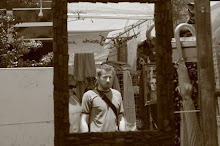The British, I believe, are culturally pre-disposed to dislike anything that appears too bossy, too smug, or too preachy. It’s why, I suspect, that signs requesting us to do perfectly reasonable things (and things we would normally do anyway) come with a ‘please’ in front of them, or a ‘thank you for not’.
If they didn’t, I genuinely think that many of us would be inclined to walk on that grass, you know, on principal.
If you’re like me, you might even make a detour to said grass, and walk on it while defiantly mumbling ‘how d’ya like them apples, ya bunch of fascists!?’.
I have sometimes, likewise, distanced myself from arguments or causes I would otherwise have completely supported, purely because of the way in which they have been presented. ‘Shouty’ this, and ‘preachy’ that, tend to make me uncomfortable, in a kind of instinctive way.
For these reasons, and a few others, I have chosen, for the most part, to keep my vegetarianism to myself. I’ve been vegetarian for fifteen years, but explained only when asked, and even then, offered merely a ‘well, it’s just a choice I made’ in the hope of avoiding serious discussion.
To be preachy, I surmised, would be to the detriment of whatever cause I could be said to support.
At times, my lack of zeal has been taken as a lack of commitment, and frequently this has led me to be on the defensive, particularly since I relocated to Brazil, where the BBQ is often an altar, and refusal to worship at it can create ‘issues’.
I now seem to spend roughly half my time explaining to people why chicken, bacon and turkey are, indeed meat, and why I can’t eat it, despite protestations to the contrary, and the other half apologising for causing either offence or embarrassment.
Yet, despite increasingly numerous ‘opportunities’, and commonly being referred to as ‘the gringo who talks with the animals’, I have still never put across an argument for, or even a defence of, my own vegetarianism.
Recently however, I have started to reconsider my position.
It would seem that many of the most pressing issues impacting our present world have at least some link to how we, particularly in the ‘developed world’, support our omnivorous lifestyles.
The vegetarian cause is no longer such a fringe one, and I think it’s time for the old image of vegetarians as either militants, or ‘tree-huggers who insist on wearing sandals with socks, and therefore cannot be taken seriously’ to be finally, and conclusively dropped.
Regardless of how vegetarians, or vegetarianism, may have been viewed in the past, it is no longer possible to deny that the cause intersects with many others, that very few of us have any trouble supporting.
Climate change for example, is frequently debated, and rightly so, yet very rarely have I seen the impact of animal farming mentioned, let alone focused on. According to extensive research conducted by The FAO, animal agriculture makes a greater contribution to global warming than all transportation in the world combined. It is the number one cause of ‘climate change’. From the land cleared for grazing, through the levels of methane, nitrates and carbon dioxide released by the millions of animals destined for human consumption, to final product transportation, the way we eat our meat is very much a part of the wider issue.
Of course, we must all, to some extent, ‘pick our battles’, but it would strike me as a very bizarre example of cognitive dissonance if we were to tackle carbon emissions from vehicles, fossil fuels etc, yet fail to consider current farming practices that have an even greater impact.
And in our world of rising sea levels, and diminishing land mass, nearly one third of the planet is currently dedicated to livestock – either for the animals themselves, or the stuff that becomes their feed. As we potentially stand to lose habitable land at alarming rates, can we continue to justify using so much of it, for a foodstuff that we can so easily reduce our intake of?
There are serious worldwide health implications too. And they are worrying, to say the least.
Aside from the long-term impact of the ‘stuff’ added to meat, the bacteria that accumulates in modern meat processing plants etc, the potential for a global pandemic is being greatly increased by our desire for cheap meat in high quantities.
Factory farming practices are essentially providing optimum conditions for the incubation and mutation of zoonotic diseases, such as the H1N1 virus. It therefore seems weird to me that, in the aftermath of this recent panic, the debate has been about whether the extent of the danger was exaggerated by scientists, rather than the practices that made it even a possibility in the first place.
I strongly believe that we now need to open serious debate around these issues. I decided to become a vegetarian, as a (precocious) thirteen year old, based on some wishy-washy ideals about animal welfare, and these reasons still hold, but in the mean time, the paradigm has shifted, and dramatically so.
And I’m not saying that everybody should become vegetarian, and I’m still going to refrain from being too ‘preachy’, but, given the stakes (or steaks), next time I’m asked with that mixture of contempt and confusion, why I’m a vegetarian, instead of apologising meekly, I think that I will answer the question properly, with both honesty and conviction.
Of course, it might not make me too popular, but it would seem to me that we have reached a point where popularity and social stigma are the least of our worries when it comes to the question of ‘eating meat’.
(Most of this was originally written in the hope that it would be printed in the comment or lifestyle section of a newspaper. It wasn't. Probably because it's shite!)
Tuesday, 16 February 2010
Subscribe to:
Post Comments (Atom)







No comments:
Post a Comment